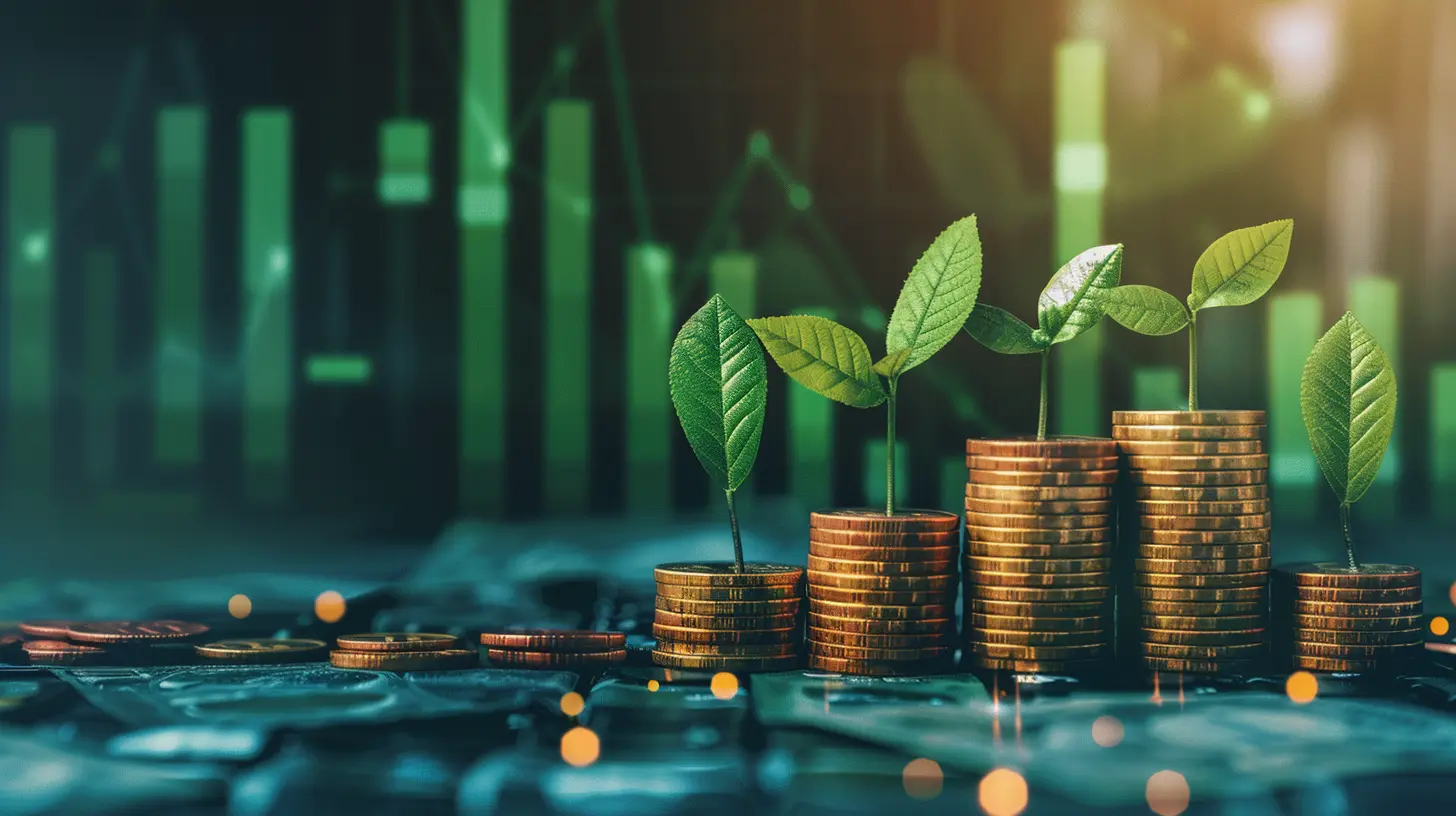Why Investors Are Turning to Sustainable ETFs
30 August 2025
The world of investing is changing. More and more investors are becoming conscious of where their money is going—and what it's supporting. Gone are the days when financial returns were the only priority. Now, ethical considerations are making their way into investment portfolios, and sustainable ETFs (Exchange-Traded Funds) are at the forefront of this movement.
But why are investors flocking to sustainable ETFs? Are they just a trend, or do they offer real financial and ethical benefits? Let's dive into it. 
What Are Sustainable ETFs?
Sustainable ETFs are funds that invest in companies committed to environmental, social, and governance (ESG) principles. Instead of supporting businesses that harm the environment or engage in unethical practices, these ETFs focus on companies that prioritize sustainability, social responsibility, and good governance.Essentially, investors can put their money into funds that align with their values—without sacrificing returns.

Why Are Investors Choosing Sustainable ETFs?
A decade ago, socially responsible investing was considered a niche strategy. Today, it’s quickly becoming mainstream. But what’s driving this shift?1. Growing Awareness of Climate Change and Social Issues
People are more informed than ever before. Climate change, social inequalities, and corporate ethics are hot topics, and investors no longer want to support companies that contribute to global problems.Would you knowingly invest in a company that pollutes rivers or exploits workers? Probably not. Sustainable ETFs make it easier to support ethical companies without having to research each one individually.
2. Strong Financial Performance
Many assume that investing sustainably means sacrificing returns. That’s a myth.In fact, research shows that companies committed to ESG principles often outperform their less ethical counterparts in the long run. Why? Because sustainable companies tend to be more forward-thinking, resilient, and well-managed.
For example, a company that invests in clean energy is less likely to be affected by future regulations against fossil fuels. Likewise, companies with strong governance structures tend to have fewer scandals and legal issues that could hurt stock prices.
3. Lower Risk in a Changing World
Investing always comes with risks, but sustainable ETFs may help mitigate some of them.Consider the oil industry. A few decades ago, investing in oil companies seemed like a safe bet. But now, as the world shifts to renewable energy, oil companies face declining demand, increasing regulations, and rising public scrutiny.
On the flip side, a company investing in renewable energy is positioned for long-term growth. Sustainable ETFs help investors avoid industries that may become obsolete due to changing global trends.
4. Demand from Younger Generations
Millennials and Gen Z are rewriting the rules of investing. Unlike previous generations, they prioritize sustainability and social responsibility when making financial decisions.Recent surveys show that younger investors are more likely to invest in ESG-focused funds than traditional ones. As this trend continues, the demand for sustainable ETFs is only going to grow—potentially driving up their value over time.
5. Companies Are Adapting
Corporations aren’t blind to these trends. Many large companies are adjusting their business models to align with ESG expectations, not just to attract investors but also because it makes business sense.Investors are paying attention to companies that:
- Reduce carbon emissions
- Treat employees fairly
- Maintain transparency in their governance
- Produce eco-friendly products
As more businesses adopt sustainable practices, sustainable ETFs will have an even broader range of strong companies to include, making them even more attractive to investors. 
How to Choose a Sustainable ETF
If you’re new to sustainable investing, you might be wondering where to start. With so many sustainable ETFs available, how do you pick the right one? Here are some things to consider:1. Check the ESG Criteria
Not all sustainable ETFs are created equal. Some might focus more on environmental factors, while others prioritize social issues or corporate governance. Make sure the ETF aligns with your values.2. Look at Past Performance
While past performance doesn’t guarantee future results, it can give you a good idea of how an ETF has handled market fluctuations. Look for funds with a good track record of stable growth.3. Analyze the Holdings
Take a peek at what companies the ETF invests in. Are they truly committed to sustainability, or are they just using ESG as a marketing gimmick ("greenwashing")?4. Consider Fees
Like any investment, ETFs come with management fees. While sustainable ETFs are generally affordable, make sure you're not paying excessively high fees for a fund that doesn’t deliver strong returns.
Are There Any Downsides to Sustainable ETFs?
Like any investment, sustainable ETFs aren’t perfect. Here are a couple of potential drawbacks:- Limited Options in Some Sectors: If you’re looking for exposure to certain industries, you might find fewer sustainable options available. Some sectors, like fossil fuels or tobacco, are generally excluded from ESG-focused funds.
- Greenwashing Concerns: Some ETFs claim to be sustainable but still invest in companies that don’t fully align with ESG principles. Always check the fund’s holdings before investing.
That said, as sustainability becomes a bigger priority, the quality and variety of sustainable ETFs are improving quickly.
The Future of Sustainable Investing
Sustainable ETFs aren't just a passing trend—they’re the future of investing. As investors continue to prioritize ethics alongside profits, ESG-focused funds will likely become even more mainstream.Governments are also stepping in, enforcing stricter regulations on pollution, labor rights, and corporate governance. This means that companies ignoring sustainability today may struggle in the future, while those embracing it will thrive.
It’s safe to say that sustainable ETFs represent a long-term shift in the investment world. And those who invest early could be setting themselves up for both financial and ethical gains.
Final Thoughts: Should You Invest in Sustainable ETFs?
If you care about both your financial future and the health of the planet, sustainable ETFs are worth considering. They offer:✅ Competitive financial returns
✅ Lower exposure to outdated industries
✅ The ability to invest in companies making a positive impact
Of course, like any investment, they aren't risk-free. But if you're looking for a way to grow your wealth while supporting businesses that align with your values, sustainable ETFs are a great option.
So, what do you think? Are sustainable ETFs the right choice for your portfolio? The answer might just be a resounding yes.
all images in this post were generated using AI tools
Category:
Etf InvestingAuthor:

Angelica Montgomery
Discussion
rate this article
1 comments
Mara Wolfe
Sustainable ETFs appeal to growing investor demand for ethical practices, yet one must scrutinize their true impact versus mere marketing allure.
September 20, 2025 at 3:37 AM

Angelica Montgomery
You're right; while sustainable ETFs align with ethical investing trends, it's crucial for investors to evaluate their actual impact and not just the marketing hype.


